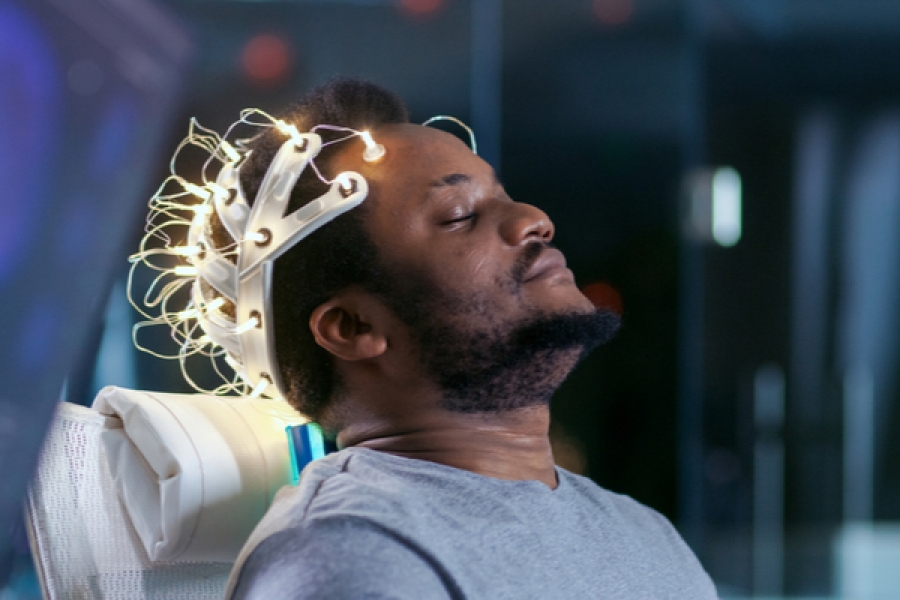The medical world is always evolving, but one thing that remains constant is the information our bodies provide us. From brainwave activity to muscle tension, the human body can communicate a lot. And when that information is collected through biofeedback, it can be used to help manage a wide range of disorders and conditions. If you’re interested in learning more about biofeedback in Denver, we’re here to help.
What is biofeedback?
Biofeedback is a mind-body technique that utilizes auditory or visual feedback to increase control over involuntary bodily functions, such as blood pressure, muscle tension, heart rate, or brainwave activity, among other things. This feedback can help you learn how to make small, subtle changes in your body to help you better manage emotional or psychological disorders.
Biofeedback treatment uses painless skin sensors and computers to collect data on:
- Muscle tension
- Heart rate
- Blood flow
- Blood pressure
- Breathing
- Body temperature
- Respiration
- And brainwave activity
From there, a specialist will create a personalized treatment plan for you based on your data. Most patients will require multiple sessions over the span of several months to better manage their bodies. Throughout that time, patients will learn to better self-regulate bodily functions that once seemed impossible to control.
What does biofeedback treat?
Biofeedback has been a very successful treatment option to help manage and treat a number of disorders and conditions. With a little bit of patience—and strict adherence to scheduled treatment sessions—it’s possible for patients to see significant changes in the symptoms they’re used to experiencing. Most commonly, biofeedback is used to treat:
Anxiety
Anxiety and other stress-related disorders originate from an individual’s involuntary reaction to chronic stress. Some of these individuals may not even be consciously aware that their body is reacting to stress. For these people, it often feels like they have no control over the symptoms they’re experiencing. Biofeedback helps them become aware of their triggers and reactions, so they can put an end to their chronic stress response.
ADHD/ADD
People with focus-related disorders often have an imbalance in their brain. Neurofeedback, a type of biofeedback, can be used to identify and address these imbalances, which in turn restructures the brain and helps it function more optimally. This treatment option can help increase the ability to focus, decrease impulsivity, and improve memory.
Migraines
Biofeedback can be used to accurately identify areas of muscle tension or irregular body temperature. In doing so, patients can learn to manage what seems like involuntary bodily reactions, which can greatly reduce or even eliminate migraines altogether.
Chronic pain
Chronic pain is exceptionally difficult to deal with. Fortunately, biofeedback can help a person better understand their brain’s response to pain and how it contributes to their physical symptoms. This can help lessen pain and reduce the need for prescription pain medications (many of which are often highly addictive).
Insomnia
Biofeedback is often used in conjunction with relaxation therapy to help treat insomnia. When patients become more aware of the physiological processes that lead to difficulty falling or staying asleep, they’re able to gain better control over them. This, in turn, leads to healthier, uninterrupted sleep.
Depression
Depression is another mental health disorder that is caused by an imbalance in the brain. Neurofeedback, a unique type of biofeedback, can be used to identify the areas of the brain that are not functioning the way they should. This type of real-time feedback helps train the brain to better respond to stimuli and alleviate symptoms associated with depression.
Benefits of biofeedback
Biofeedback appeals to people for many different reasons. Some of the most common reasons include the fact that:
- It’s non-invasive
- It doesn’t have any side effects
- It can reduce or even eliminate the need for medications
- It identifies the source of the problem that’s contributing to your symptoms
- It can be used in conjunction with other forms of treatment
- It helps people feel more in control of their health
Learn more about biofeedback in Denver
It’s easy to see why biofeedback is such a promising treatment option for people who struggle with physical or mental health disorders. If you’re interested in learning more about biofeedback in Denver, reach out to us at Braincode Centers.
Schedule your free consultation to get started today.




